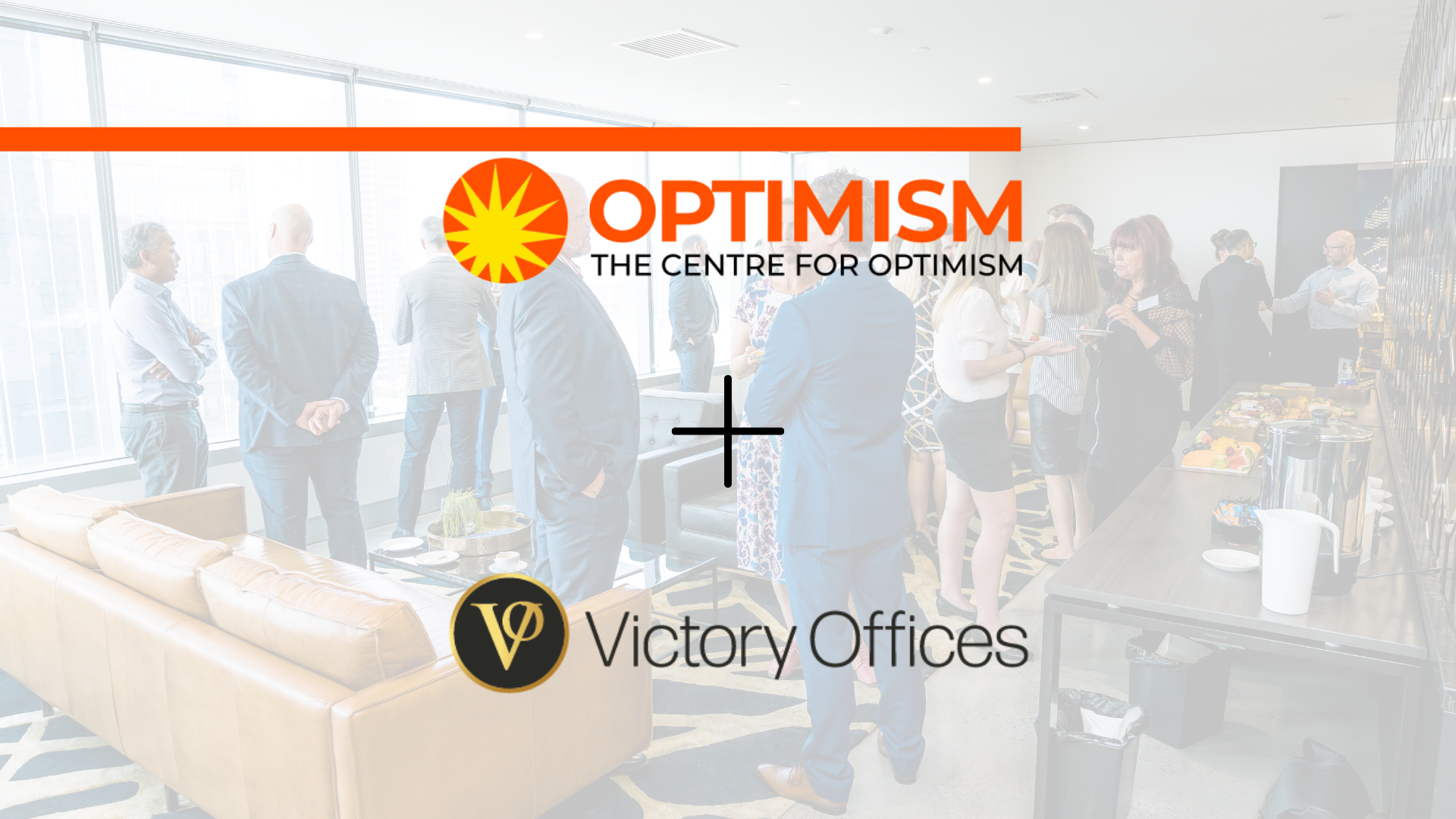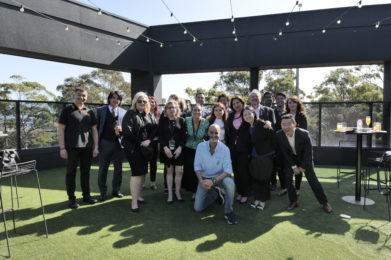MBN Coffee Catch-up: 2022 MBN Business Awards
Welcome to the monthly MBN Coffee Catch-up! With applications for the 2022 MBN Business Awards rapidly approaching, this month we are ...
In a time characterised by pandemic-fear and business-gloom, the counter-play is realistic and infectious optimism.
What do you do to make it a reality?
National premium flexible workspace provider, Victory Offices leads the way in taking action to lift the spirit of our teams, members, stakeholders, and the wider community.

National premium flexible workspace provider, Victory Offices leads the way in taking action to lift the spirit of our teams, members, stakeholders, and the wider community.
Victory Offices is pleased to announce today Victor Perton as their Optimist-in-Residence. He will spend three months in various Victory Offices locations, asking people: “What makes you optimistic?” to #inspire individuals, teams, and corporations to think more positively, with an opportunity mindset.
“Traditionally, Melbourne small business is more optimistic than the rest of Australia and Australia more than the rest of the world. Time to get back to that relentless optimism that characterises the entrepreneur, small businessperson, and the regular Australian! And with Victor, we are delighted to be leading the way.” – Wendi Dawson

The Rooftop Tacos and Drinks event hosted at our stunning St Kilda Rooftop location was a huge success bringing together prominent figures across a diverse range of industries for a professional yet casual networking session.
Our Optimist in Residence Victor Perton also made an appearance and inspired the team with his words of wisdom.
Missed out? We’re always running these sorts of events, so keep an eye on our events page and website for upcoming events.
Be sure to stay up to date with all of our upcoming events online.
These events will still go ahead if the relevant state is in lockdown – they will just be moved to online events, so you will still have your chance to network, socialise and unwind.
We look forward to seeing you at one or more events from this exciting list!
Welcome to the monthly MBN Coffee Catch-up! With applications for the 2022 MBN Business Awards rapidly approaching, this month we are ...
During the month of October, Victory Offices welcomes you to our Wellness Wednesday sessions. In our fast-paced life, we all ...
About this event Welcome to the MBN November Monthly Catch-up! This is your chance for members and friends ...
Victory Offices HR Manager

It seems like only yesterday when we were making exciting plans for 2021, believing that the pandemic wouldn’t extend into the new year. Fast forward 12 months and a new COVID variant has only just emerged. Like everyone’s been saying, we’re going to have to learn to live with this virus.
Our workplace has changed so much in these past 2 years, and it’ll continue to do so in 2022 as well. Undoubtedly, the needs of workers around the world have evolved too. It’s crucial that human resources teams are prepared to meet these fast-changing needs. Here are the 5 HR trends to watch out for.
1 – Role flexibility and purpose
Gone are the days when employees were motivated by additional responsibilities and a career growth. Their focus has shifted to learning, personal development and doing something meaningful. Something that makes an impact.
Of course, not every business and role have a direct impact on the betterment of the society; however, leaders can help their teams create a meaning in their role by helping them find their purpose such as “making every customer feel special” or “ensuring that every team member feels valued”. Without it, it’s easy to forget what gets us out of bed each day, ultimately leading to a disconnect.
Concurrently, the pandemic has made most people assess what’s important in their lives, and it’s no surprise that their personal growth and family take precedence over work. Many might request to reduce their weekly hours, or wish to reduce their usual responsibilities, or even just avoid taking on new tasks to be able to enjoy a quality life.
Businesses will learn to accommodate such requests while also ensuring that they don’t lose valuable talent from their workforce. We’ll need to find creative and flexible roles to keep everyone employed and engaged.
2 – Empathetic leadership
There was a 20% increase in calls made to Lifeline during the pandemic, not to forget that other helplines such as Beyond Blue and the Butterfly Foundation also reported a significant increase. People are looking for assurance and certainty while the world around them is stressful and unreliable. It is of utmost importance that leaders lead with empathy, and more importantly, compassion.
The role of a manager is nowhere near what it used to be some years ago. Their job isn’t just to provide feedback and guidance on tasks, but to also be a mentor for their team. Someone they can look up to and approach when they are in need. Someone they aspire to be, someone they can relate to. Businesses must provide their management teams with the necessary skills and training so they can be the leader that their workforce desperately needs.
3 – Evolution of the hiring process
Certainly, we have all come across companies that ask their candidates to meet with several stakeholders during the recruitment process or take forever to make a hiring decision. Soon this will be obsolete if it hasn’t happened already. In this competitive and fast-moving world, businesses can’t afford to spend so much time sitting on it while their candidates are flush with job offers from elsewhere.
We’ll need to reassess our recruitment methods, recruitment styles and the overall length of the entire process. Our systems must become efficient. Additionally, with the candidate market being so scarce and aggressive, HR teams will be compelled to conduct a skills gap analysis and create a development plan within their organisations so they can hire internally instead.
4 – Career experience over development
Employees are now much less likely to work in a single organization their entire lives. The newer generations are known to change jobs more often due to plain boredom or lack of purpose, or merely due to their curiosity to see what else is out there. What can businesses do when they have only so much control over employee retention? No matter how many retention strategies are implemented, not every worker will find it engaging or worthy.
Our focus needs to shift from career development to career experience. We need to come to terms with the fact that not every employee will stay forever. Some will move on sooner than others. The only thing we have any influence on is the kind of experience we can offer them. And who knows, they might want to return to us in future on account of the experience we were able to provide, the development opportunities they were given, and the relationships they were able to build within the business.
5 – Managing a multi-generational workforce
For the first time in history, our workforce has five generations working side-by-side – Traditionalists, Baby Boomers, Gen X, Millennials and Gen Y – each with their own ideologies, values, and priorities. The trick is in finding what brings everyone together, as opposed to what separates them.
It is essential that our leadership team is equipped with an understanding of where each generation is coming from, the best methods to meet their needs, and leveraging those generational differences for success.